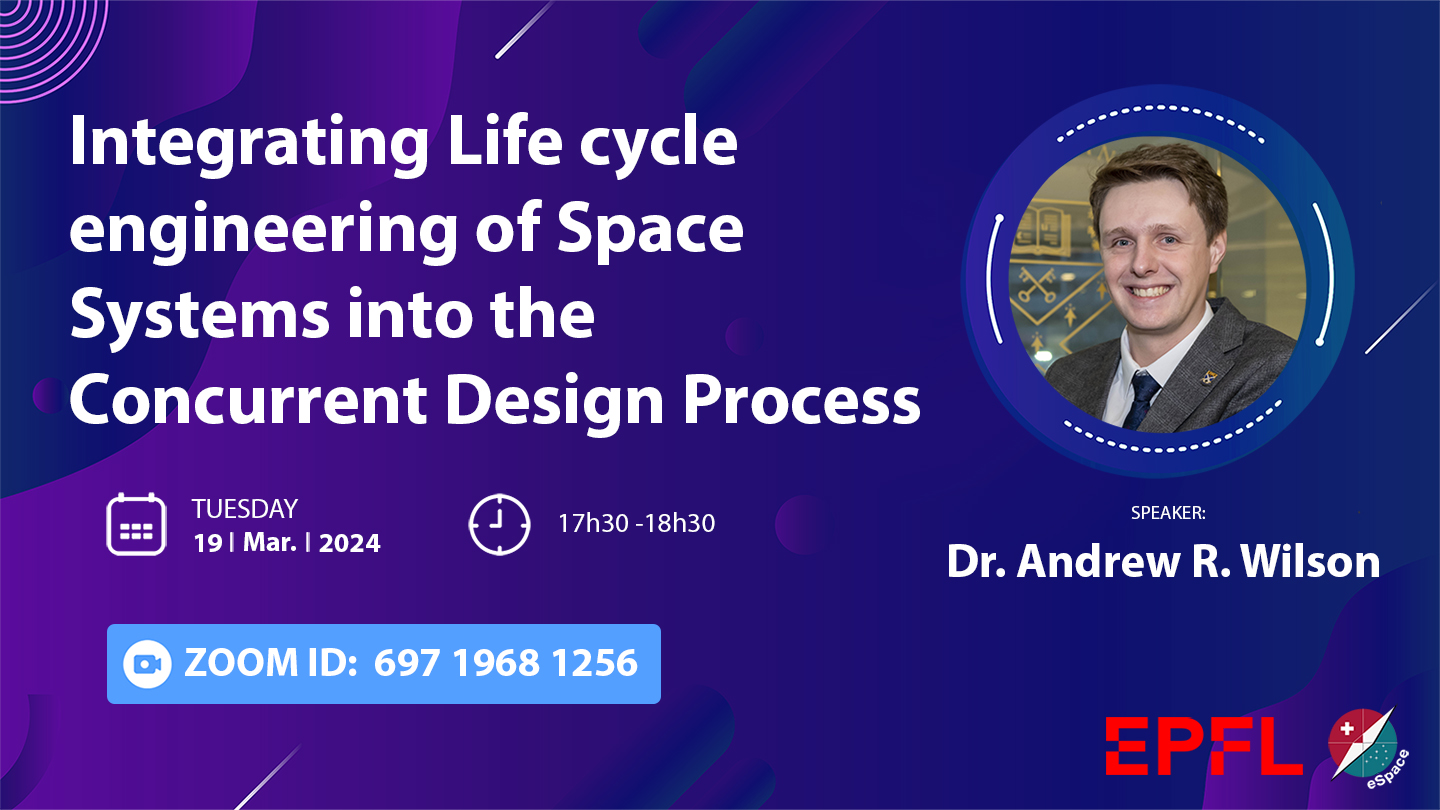
- This event has passed.
Integrating Life cycle engineering of Space Systems into the Concurrent Design Process

The application of Life Cycle Engineering (LCE) within the concurrent engineering process presents a viable method for assessing environmental, social and economic impacts of space missions. Despite the importance of this for embedding sustainability principles into spacecraft design, the novelty of the concept within the concurrent engineering process has meant that the approach has not yet been widely implemented. In this presentation, Dr Wilson will discuss his experience and the challenges of applying LCE within a concurrent design setting. Drawing upon examples and case studies, he will outline the progress being made within this field, and present key findings that are important takeaways when including LCE as an engineering discipline within concurrent design studies of space systems.
Dr Andrew Ross Wilson is a Lecturer in Environmental Management at Glasgow Caledonian University (GCU). He holds a BSc (Hons) in Environmental Management from GCU and a PhD in Mechanical and Aerospace Engineering from the University of Strathclyde.
Andrew specialises in space sustainability, with a particular focus on life cycle assessment, carbon accounting and energy systems of engineering projects. However, Andrew’s technical background is in environmental management, and his work is extremely interdisciplinary. In this regard, Andrew’s services are often consulted by external parties with regard to the assessment, mitigation and communication of sustainability issues. This can often vary from being very specific and technical-facing, to being broad and societal-facing, and the range of risks, impacts and decision-making processes in between. Ultimately, his work aims to inform how society can transition towards a future that is truly sustainable, as envisaged through the 2030 Agenda for Sustainable Development.
Due to his contribution to science and technological development, Andrew was awarded the 2018 Young Scot Environment Award, designated one of Junior Chamber International’s Ten Outstanding Young Persons of Scotland in 2019, won the ESA-EISC Space for Sustainability Award 2021, and was named GCU Alumni of the Year 2022.